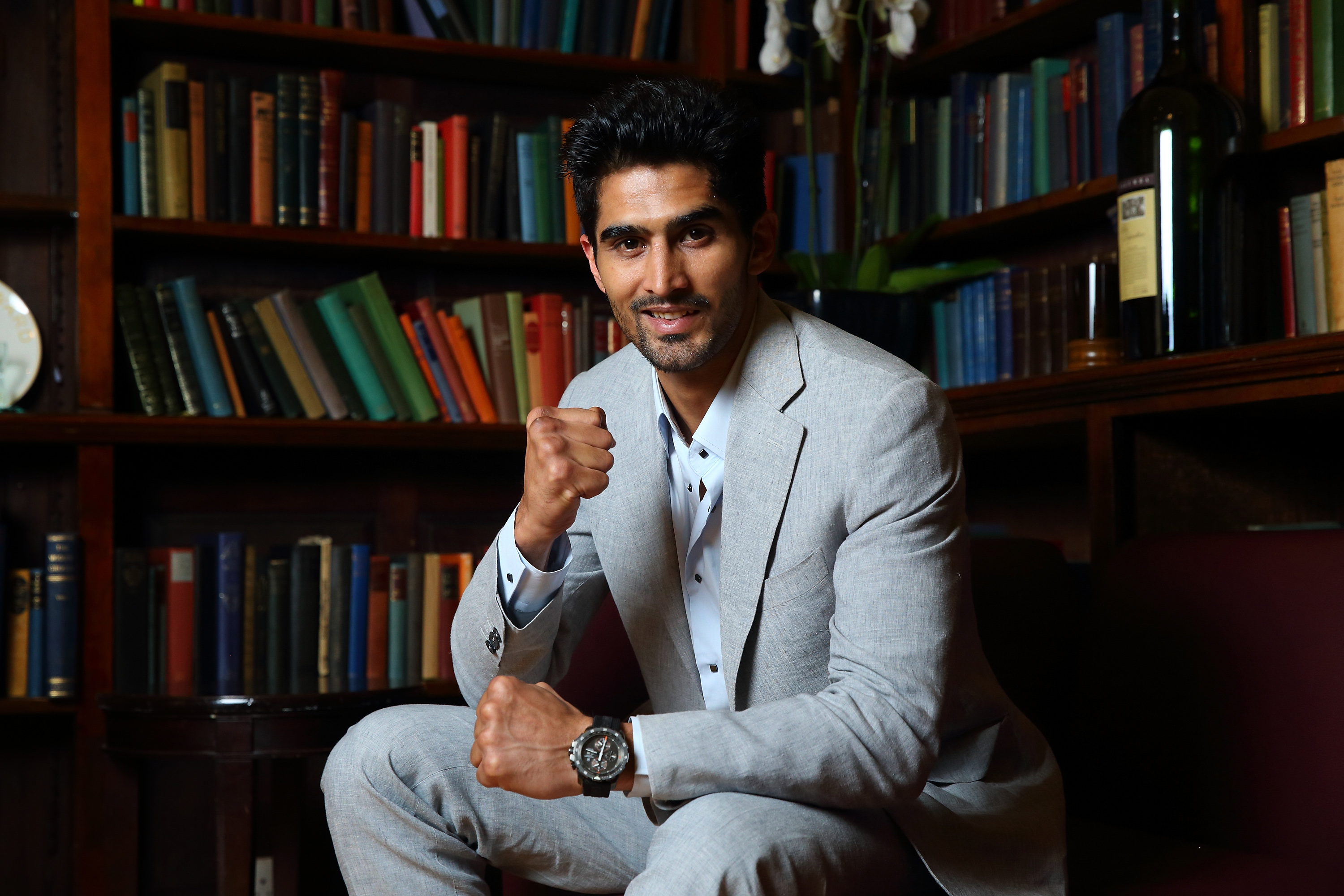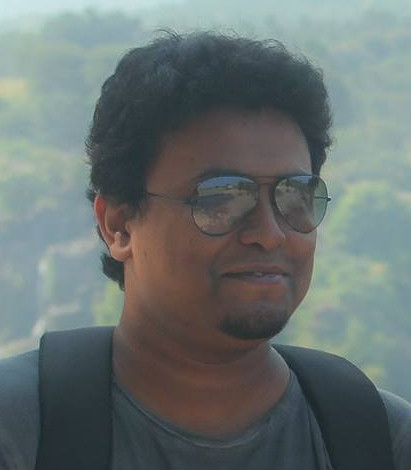SportsCafe Exclusive with Vijender Singh - They love Mike Tyson but if an Indian boxer turns professional, they question him [Part II]
In a candid interview, Vijender Singh speaks to us on topics ranging from the negativity surrounding his move to pro boxing, to what is wrong with boxing in India and the life lessons he has learnt in the ring.

Vijender has been the poster boy of boxing in this nation for a long time. He voluntarily took up a role in the Haryana police department, made numerous on-screen appearances in reality shows on television, made his Bollywood debut in 2014, apart from providing the nation with its first Olympic medal in boxing. So when he, eventually, made the switch to pro boxing last year, it seemed like a natural progression for someone like him into a sport which celebrates stardom and show-stoppers like few others.
Indian boxing was in need of a superstar, a national icon, who would inspire future generations to take up the sport. Every boxing icon India has had in the past, belonged in amateur boxing, while pro boxing still remained a less-traveled path. In fact, when Vijender Singh announced his decision to move to professional boxing a lot of eyebrows were raised, and some even questioned his patriotism.
“Yes. There was a lot of negativity surrounding it. You know, it happens all the time in India. If someone tries something new, a lot of people will try to chain him down. Back then a lot of controversies were going on. They used to ask, “Why are you doing that?” and “Why are you not going to the Olympics?”. The thing about Olympics is that people think it like some
They love to see Mike Tyson. But if an Indian boxer goes there, they start asking, “why are you going there?” and “what is the problem with you?”
“They love to see the big fights, you know. They love to see Mike Tyson. But if an Indian boxer goes there, they start asking, “why are you going there?” and “what is the problem with you?”. That is the only issue. They should change their mindset. You should support them. It is a new thing. A guy from a village in India is going to London to make a career. You should support that guy.
“It is okay, actually. I do not care about them. I am going on with my life. I am going on with my pro boxing here. It is almost a year now. Everybody is in
However, just before the Rio Olympics earlier this year, it seemed like Vijender might still have
“Almost a month before the Rio Olympics, they announced that pro boxers can participate in the Games. The decision came from the AIBA. It was a month before, I still remember the date. They were saying that pro boxers can participate. So, I was preparing for my title fight. I was training for 10 rounds, and suddenly, I had to train for 3 rounds for the amateur boxing. It is not possible. My whole schedule would have been ruined if I had gone for the Olympics. Had they announced it 3-4 months before the Olympics, then I can yes I am happy to do that. And nobody was going to go from pro boxing to

 © Getty Images
© Getty ImagesThe Rio Olympics started
“No, I cannot say that. I cannot say that I could have won a medal had I gone to Rio. It is not that easy. It depends on so many things. It depends on the draw. It depends on performances. It depends on the environment. So, there are so many things you are up against. Thanks to girls, especially PV Sindhu and Sakshi Malik, India won a couple of medals. They saved our izzat. We have more than 100 million people in India, and we hardly get
“They are not interested in what is happening
If one looks beyond the recent achievement of Vijender Singh, at the core, Indian boxing is in shambles at the moment. Mary Kom had recently expressed her grief about being unable to compete under the Indian flag due to the mess the boxing federation was in. So when we asked Vijender how this mess could be fixed, and the promising sport of boxing can be taken to the next level, the Haryana-born pugilist did not have an optimistic answer.
“There are so many things. So many. I do not think we can do it. There are a lot of plans, lot of energy, lot of ideas, but nobody applies those things. It is the same thing
“I know what they are doing in the boxing camp in Patiala right now. I know what they are doing today. Today is Thursday. They are doing weight training in the morning. In the evening, there will be 7-8 rounds of sparring. I know what they will do. I know the
Has nothing really changed since the turn of the new millennium?
“Nothing has changed. Not the coach, not the system. Everything is same, same, same. Come on, man! Give chances to the new people, the new coaches, the new physiotherapists. They give you the best things available. But nobody cares.
“You see, I am based in
However, despite all these handicaps, India have been producing a lot of promising talents like Shiva Thapa, who Vijender feels is the most promising Indian prospect at the moment. But, Vijender wants them to secure their future before dipping their toes into the world of pro boxing. He said, “It depends on them. We are Indians, right? Our first priority is to get a government job, or any job for that matter. That is the only thing. We are Indians, we think about the future. We do not think about the present. So they can secure their future first, then they can turn towards a pro boxing career. That is my advice to them. First, you get a job, then maybe become a national champion, and then you turn pro. That is good for you, I think.”
When asked about his suggestion for young kids who aspire to be a boxer someday, Vijender’s reply was short and crisp: “Work hard. Do not try shortcuts. Just work hard. That is it.”.
The 31-year-old is now set to defend his WBO Super Middleweight Asia Pacific title against former World Champion Francis Cheka on December 17, who is likely to be the toughest opponent he has faced so far. However, Vijender already has his plans in place to take him down.
“Yea [he will be the toughest opponent I have faced], look at his achievements. He is a former world champion. He is an experienced guy with a long career. He has been in a lot of big fights, and I have seen those on the Youtube. But, we have plans for him. I have discussed with my coach. I am just focusing on that at the moment. What we will do in the ring, we have a plan in mind. Hopefully, that will work in the ring,” he stated.
One way of tackling someone as experienced as Cheka is to keep evolving in the ring. Vijender has stressed the importance of planning and changing tactics for every match. He said, “Yes. You have to be different
However, like most of us, even Vijender Singh harbors regrets. When asked if he would like to change anything from the past he said, “In 2012, I lost in the quarters. If I get a chance, I would like to change that. If I can just go back and beat that Uzbekistan guy. I had beaten him in 2010. So that is the only thing I would love to change in the past.”
The pain is not permanent. The time is not permanent. It goes away. There will be bad times, there will be good times.
Similarly, he regrets not switching to pro boxing much earlier in his career. “I have that regret. But, I believe in God. Like,
The ring has been Vijender’s life. He has thrown punches, received them, but most importantly, it has taught him a very important life lesson - “Nothing is permanent”.
“Yes, of course [I have
The Thyagraj Sports Complex, where Vijender won his maiden pro boxing title earlier this year, is no Madison Square Garden, yet the jam-packed stands in Delhi on that day, in a nation which is barely acquainted with pro boxing, provides hope for the future of this sport. Especially, in a nation which does not even have a boxing federation for its amateur version at this point.

Comments
Sign up or log in to your account to leave comments and reactions
0 Comments